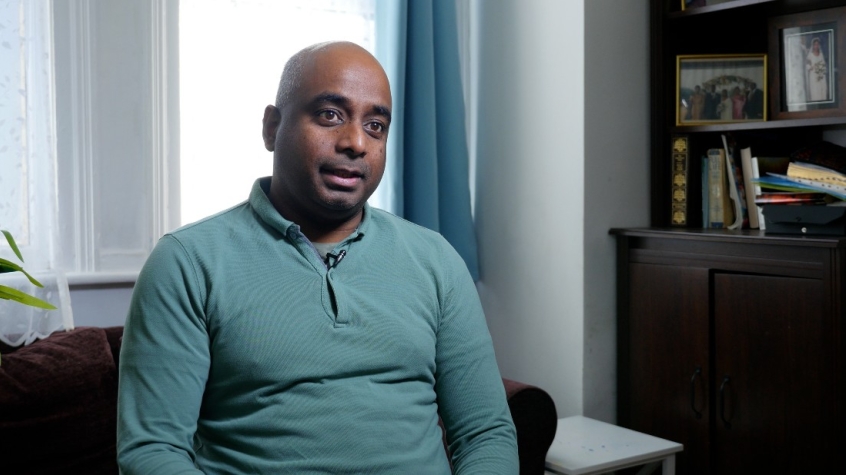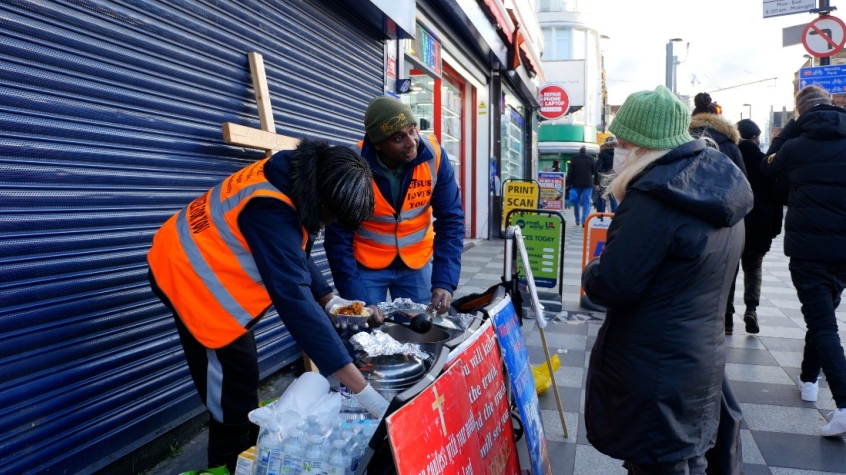
A street preacher who was arrested on Easter Sunday 2020 for supposedly being in breach of Covid regulations has been exonerated by the courts after a two-year legal battle.
Andrew Sathiyavan was arrested on Sutton High Street, London, during lockdown after being told by officers that his preaching was "unacceptable", "non-essential" and "causing anti-social behaviour".
The 47-year-old argued that he was exempt from restrictions because he was a key worker and that his ministry involved providing physical and spiritual support to addicts and the homeless community.
Mr Sathiyavan, who is a full-time voluntary worker for Gospel Light Ministries, was then detained in a police cell for four hours and issued with a Covid fine.
The fine was upheld by the Deputy District judge who claimed that he could have carried out his street preaching and support ministry online.
Supported by the Christian Legal Centre (CLC) in his case, a judgment handed down by Isleworth Crown Court has now vindicated Mr Sathiyavan.
The judgment from Judge Simon Davis concluded that Mr Sathiyavan had a reasonable excuse to be outside during lockdown because he was providing "voluntary and charitable services" and that there were "no other alternatives" for him but to conduct his ministry on the streets.
"We accepted that, on that particular day [the most important in the Christian calendar] the focus of Mr Sathiyavan's ministry was the homeless, the poor and drug addicts, many of whom will not have ready access to Facebook, the internet or other forms of social media," the judgment stated.
It found that his "motives were genuine" and that he was driven by Jesus' command to "go and make disciples of all nations".
"We accepted that, on that particular Easter Day, the fact that there were few people on the High Street in Sutton was immaterial to Mr Sathiyavan for, as he told the Court, if one person was 'saved' that was sufficient as he would have done as Christ did, namely, to go in search of the one lost sheep."
Mr Sathiyavan said he was relieved that the case against him had finally been dropped.
"I was treated like a criminal for preaching about Jesus Christ," he said.
"When the pandemic began, there was so much fear. I saw that due to the crisis that the vulnerable were experiencing even greater mental health issues. I knew I had to do something about it as nobody was caring for the homeless.
"I cannot do my ministry online. We reach out to people who are really weak and desperate, and we give them support materially, emotionally and spiritually. That can involve providing a hot meal, praying for them and telling them about the hope that can be found in Jesus."
He said the police's actions against him had "set a dangerous precedent". He suggested that he would do the same again if the country were to come under similar restrictions again in the future.

"It does concern me that while I have been fighting this legal battle, members of the government, who shaped the regulations, were holding parties and breaking the rules," he said.
"However, my story reflects a wider problem with how the police view, perceive, and handle Christian ministry and free speech on our streets.
"Police were given powers during lockdown to clamp down on Christian ministries which has set a dangerous precedent.
"I was and still am shocked at how I was treated and how long it has taken for this case to be dismissed. If the judge had not made this ruling today, I would have had a criminal record.
"If as a country we ever face a similar crisis in future, Christian ministry, whether on the streets, at the homeless shelters or in the pulpit, must step up and reach the most vulnerable rather than closing its doors and going online. Reaching the most vulnerable at a time of crisis is what Christian ministries have always done and that is what Jesus would have done during the coronavirus pandemic."
Andrea Williams, chief executive of the Christian Legal Centre, said street preachers had been "easy targets compared to many others sectors of society including members of the government".
"The previous ruling, which said that Andy should have taken his work preaching and supporting the homeless online, was simply wrong and failed to understand and engage with what Christian ministry is," she said.
"What Andy was doing on Easter Sunday 2020 was what Christian witness should have looked like during the pandemic - ministering to people's physical and spiritual needs. Instead, we saw Christian preachers and pastors, like Andy, who have a heart for reaching those in great need in their communities, fined, arrested, and prosecuted for doing so.
"Street preaching has always required physical presence on the street, and the importance of doing so during times of crisis heightened, not lessened. It cannot reasonably be conducted over the internet, as this would exclude the most vulnerable in society."













